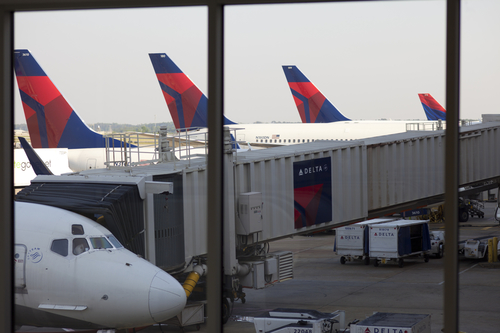
When, through mergers and acquisitions, the big airlines of America were reduced to four (Delta, United, American, and Southwest), such critics like me complained that they would soon begin acting like monopolies, taking joint actions, immediately copying each others' worst anti-consumer rules, ceasing to compete.
Nothing could better support such a prediction than a totally uniform, copycat action taken last month by three of the four so-called "legacy" carriers—Delta, United, and American. Almost as if there were no prohibition against joint action, all three changed their rules to provide that a person buying a multi-stop airfare—that is, one going to several destinations in the course of a single itinerary—would be required to buy refundable tickets for the entire trip. Refundable tickets are of course much more expensive than non-refundable ones, and the total cost of a trip going, let's say, from New York to Chicago to Los Angeles, has just skyrocketed in price.
To repeat: Each one of the three legacy carriers has adopted the same rule, greatly increasing the cost of flying for a person going to several destinations in one trip. The possibility that one airline might compete with two others by selling cheap non-refundable tickets to cost-conscious travelers has been cast out the window,.
Already, one U.S. senator has asked for an investigation into this collusive behavior, but if past situations are predictive, nothing will happen.
The current Congress simply doesn't yet favor regulating any businesses at all, even businesses of considerable importance to us consumers.
If you have been on a domestic trip by air recently, you have undoubtedly noticed that virtually every plane you take is 100% full, every seat is occupied, causing tension and anxiety on every flight. This comes about because the legacy carriers are, in my view, deliberately operating fewer flights than are warranted, and filling every one of them—to their great profit.
In a competitive industry this would not happen. Airlines would seek a business advantage by operating more flights than are strictly necessary, and pricing those flights at budget levels to gain an advantage over their competitors. This apparently no longer happens, and the airlines as a consequence are rolling in profits amounting to many billions of dollars per airlines per year.
And the consolidation of airlines continues without led-up. Only short weeks ago, the staid carrier known as Alaska Airlines announced it will acquire the exciting Virgin America Airlines, thus threatening an end to the truly innovative touches that Virgin America has introduced into the industry of travel. In this fashion, the smaller airlines—Jet Blue, Frontier, Spirit—are also about to dwindle in number. Does anyone doubt that they will eventually be acquired by either a legacy carrier or something more their size?
The time has come for a renewed investigation of airlines and airfares within the United States. When, some 37 years ago, the airlines were de-regulated, did anyone suspect we would reach the situation of stagnation and monopoly that now characterizes that industry?
Our fondest hopes for de-regulation have been badly dashed, and the time has come to consider a new structure of regulation for these public utilities that airlines have become.





